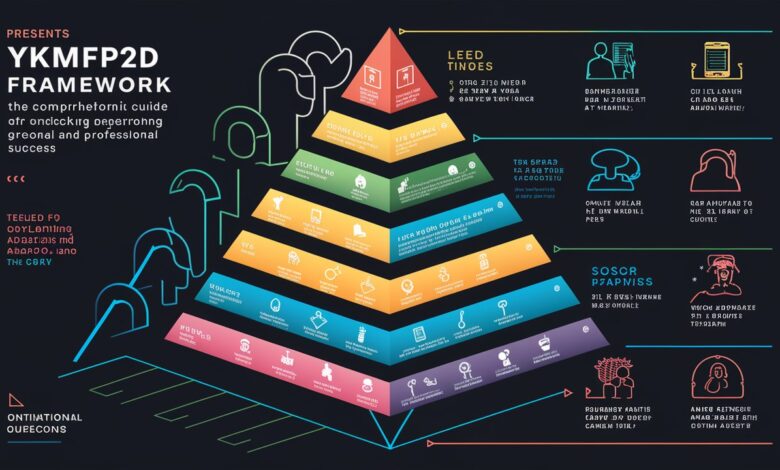Unlocking Success with YKMFP2D: A Comprehensive Framework for Growth

In a world saturated with productivity hacks and self-improvement strategies, the YKMFP2D framework stands out as a holistic approach to personal and professional development. This methodology combines seven pillars—Yield, Knowledge, Mastery, Focus, Practice, Discipline, and Two-Dimensional Thinking—to create a roadmap for sustained success. Whether you’re an entrepreneur, student, or creative professional, understanding these principles can transform how you approach challenges, refine skills, and achieve long-term goals. In this article, we’ll unpack each component of YKMFP2D, explore their interconnectedness, and provide actionable insights to integrate them into your daily life.
Yield to Growth: Embracing Adaptability
The first pillar, Yield, emphasizes the importance of adaptability and openness to change. Growth often requires letting go of rigid mindsets or outdated habits that hinder progress. For instance, professionals who resist learning new technologies may stagnate, while those who “yield” to innovation stay competitive. Yielding isn’t about surrendering control—it’s about strategically pivoting when circumstances demand it. This principle encourages reflection: What beliefs or routines are holding you back? By cultivating flexibility, you create space for opportunities that align with evolving goals.
Knowledge Acquisition: Building a Foundation
Knowledge is the bedrock of the YKMFP2D framework. In an era of information overload, the key lies in curating relevant knowledge rather than passively consuming data. This involves identifying credible sources, dedicating time to deep learning, and applying insights to real-world scenarios. For example, a marketer studying consumer psychology gains actionable strategies to improve campaigns. However, knowledge alone isn’t enough—it must be paired with critical thinking. Ask: How does this information fit into the bigger picture? Regularly revisiting and updating your knowledge base ensures relevance and adaptability.
Mastery Through Deliberate Practice
Mastery transcends basic competence—it’s about achieving excellence through intentional effort. The YKMFP2D model highlights deliberate practice as the path to mastery, which involves setting specific goals, seeking feedback, and refining techniques. Consider a musician practicing scales daily versus one who mindlessly plays songs; the former hones precision and artistry. Mastery also requires patience, as progress is often nonlinear. Embrace the journey, celebrate incremental improvements, and recognize that setbacks are part of the process.
Focus: The Art of Prioritization
In a distracted world, Focus is a superpower. This pillar revolves around channeling energy into high-impact tasks while minimizing distractions. Techniques like time-blocking, the Pomodoro method, or digital detoxes can sharpen focus. For instance, a writer completing a novel might dedicate morning hours to uninterrupted drafting. However, focus isn’t just about productivity—it’s about aligning efforts with priorities. Regularly ask: Is this task moving me closer to my goals? By eliminating non-essential activities, you preserve mental bandwidth for what truly matters.
Practice: Consistency Over Intensity
While mastery requires practice, the YKMFP2D framework stresses consistency over sporadic bursts of effort. Daily habits, even in small doses, compound over time. A language learner studying 20 minutes daily will outpace someone cramming for hours once a week. This principle also applies to physical fitness, creative projects, and skill development. To build sustainable routines, pair practice with accountability systems, such as progress tracking or peer support. Remember: Progress is gradual, but consistency turns effort into habit.
Discipline: The Engine of Long-Term Success
Discipline is the glue that binds all other pillars. Without it, even the best strategies falter. Discipline involves committing to routines despite fluctuating motivation. For example, an entrepreneur adhering to a business plan during market downturns demonstrates resilience. To strengthen discipline, start with micro-commitments—waking up early, maintaining a journal—and gradually scale up. Over time, discipline becomes a core identity trait, enabling you to navigate challenges with grit and determination.
Two-Dimensional Thinking: Balancing Depth and Breadth
The final component, Two-Dimensional Thinking (2D), encourages balancing specialized expertise (depth) with interdisciplinary awareness (breadth). A software developer skilled in coding (depth) who also studies UX design and project management (breadth) becomes a versatile asset. This duality fosters innovation, as cross-pollinating ideas from different fields sparks creativity. Regularly explore adjacent domains, attend diverse workshops, and collaborate with professionals outside your niche.
Conclusion
The YKMFP2D framework isn’t a quick fix—it’s a lifelong philosophy for growth. By yielding to change, acquiring knowledge, pursuing mastery, focusing on priorities, practicing consistently, cultivating discipline, and embracing two-dimensional thinking, you build a resilient foundation for success. Start small: Identify one pillar to strengthen this week, then expand your efforts. Over time, these principles will intertwine, creating a virtuous cycle of improvement. Remember, greatness isn’t achieved overnight—it’s forged through intentional, daily action.
Frequently Asked Questions (FAQs)
Q1: How can I apply YKMFP2D to my career?
Begin by auditing your current habits. Identify areas where rigidity (lack of yield) or inconsistency (poor discipline) hinder progress. Set SMART goals aligned with the pillars, such as dedicating 30 minutes daily to skill-building (practice) or attending cross-functional meetings (2D thinking).
Q2: Can YKMFP2D work for creative projects?
Absolutely! Creativity thrives on structured frameworks. Use “focus” to allocate time for ideation, “practice” to refine your craft, and “two-dimensional thinking” to draw inspiration from unrelated fields.
Q3: How do I balance discipline with flexibility?
Discipline provides structure, but rigidity stifles growth. Schedule regular reviews to assess what’s working and adjust strategies. For example, if a practice routine becomes monotonous, experiment with new techniques (yield).
Q4: What if I struggle with consistency?
Start with micro-habits. Commit to 5–10 minutes of daily practice, then gradually increase duration. Pair activities with existing routines (e.g., practice after morning coffee) to build momentum.
Q5: How do I measure progress in YKMFP2D?
Track metrics like hours spent learning, milestones achieved, or feedback received. Reflect monthly on how each pillar has contributed to your goals, and celebrate small wins to stay motivated.




